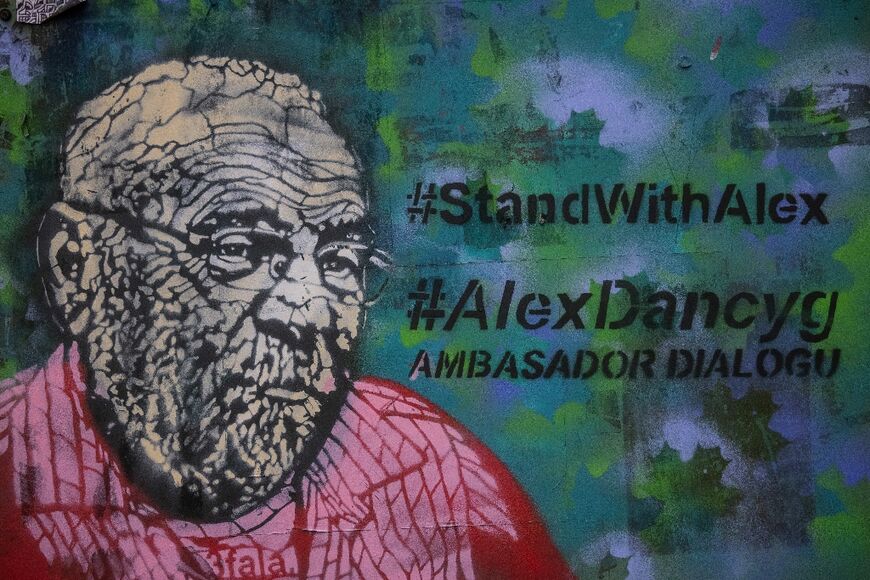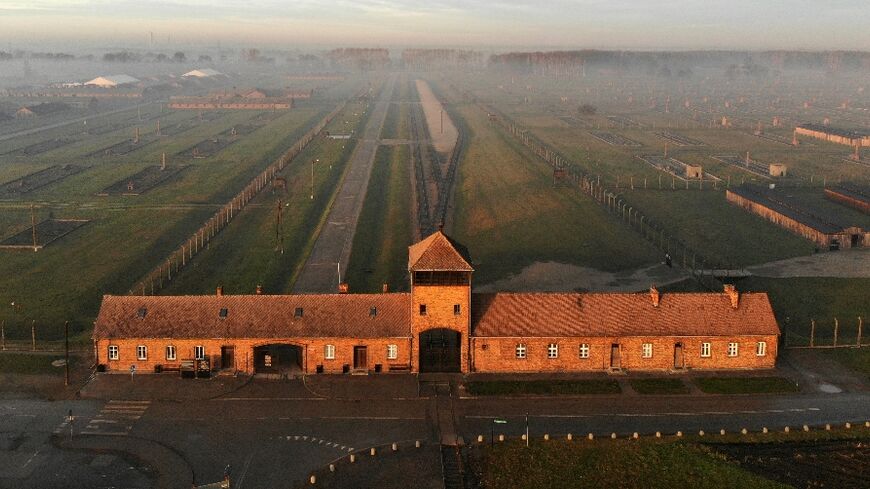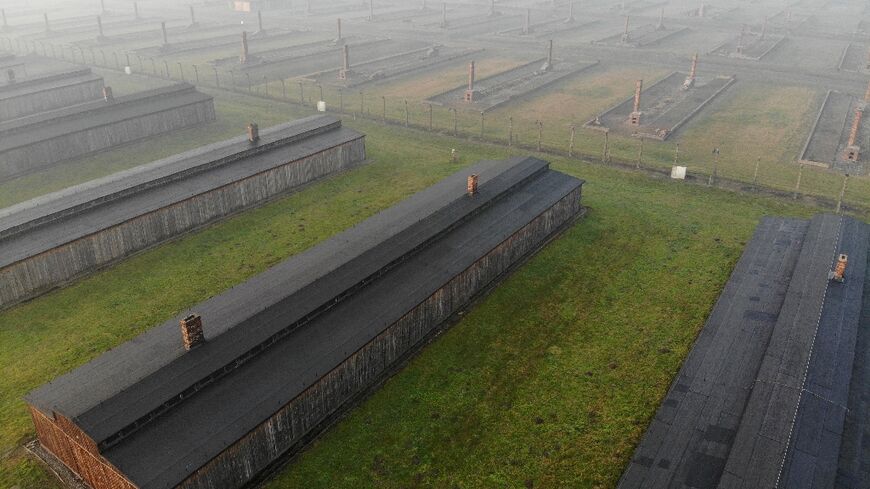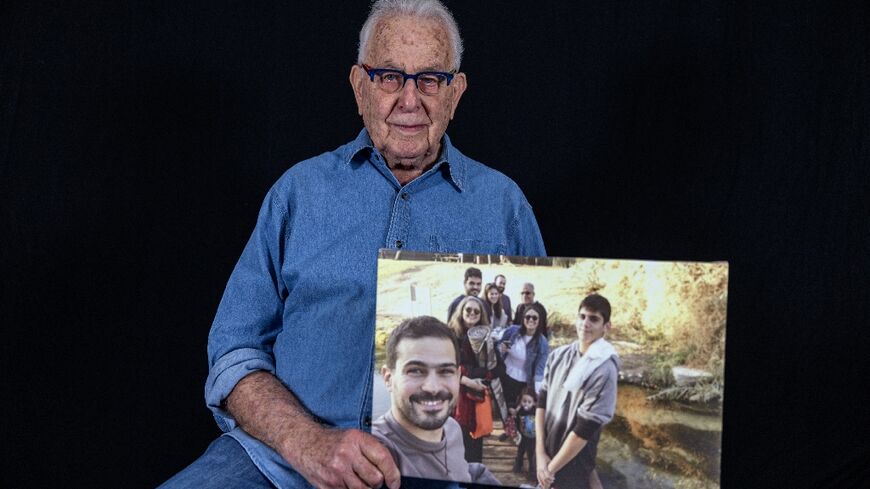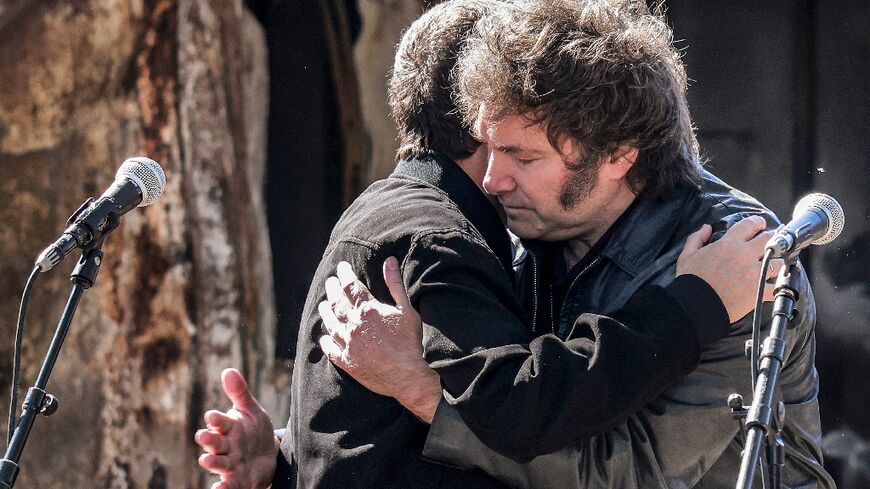Campaign in Poland to bring home Holocaust historian held by Hamas
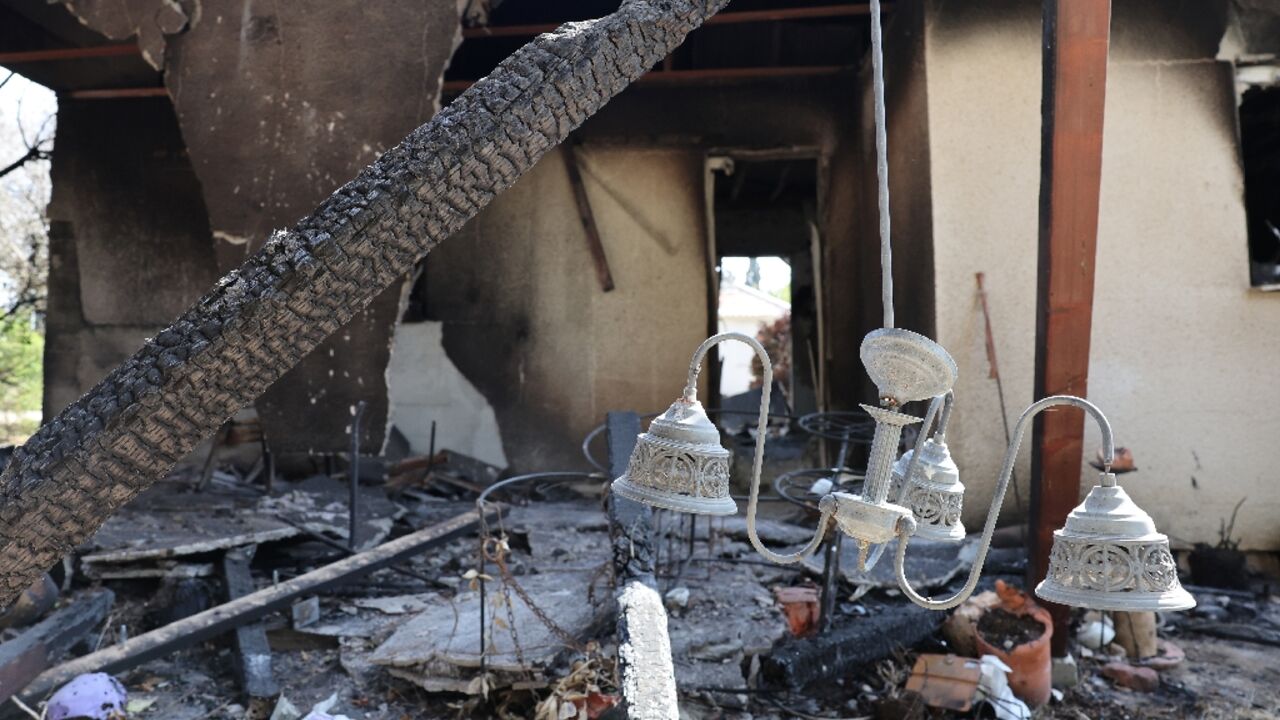
Polish-born Israeli historian Alex Dancyg has dedicated his life to passing on the memory of the Holocaust. Now the 75-year-old is feared to be among the hostages Hamas in holding in war-torn Gaza.
Desperate for his safe return, friends and family have launched a campaign to build pressure for his release -- echoing similar efforts for captives from Israel to the United States and Thailand.
In the weeks since the October 7 attack, messages tagged #StandWithAlex have been shared widely on Polish social media, and Dancyg's face is seen on posters and murals painted in the streets of Warsaw.
Many hail him as the "ambassador of dialogue" for his long efforts to ease long-standing suspicions between Poland and Israel and the ties he built across both Europe and the Middle East.
The academic and his family were at the Nir Oz kibbutz near Gaza when the Hamas militants launched their cross-border attacks and killed more than 1,400 people, according to Israeli authorities.
The gunmen dragged 222 hostages back into Gaza, the Palestinian territory Israel has since relentlessly bombed, killing more than 6,500 people, according to Gaza's Hamas-run health ministry.
In the confusion of the early hours, the elder historian gave urgent warnings to his son.
"He was the one who told me: 'Look at the messages, look what's going on'," Mati Dancyg, who survived hiding in a shelter, told AFP by phone from an Israeli hotel for evacuated kibbutz residents.
When the attack was over, the elder Dancyg was gone, and his phone has gone silent.
A close friend, Orit Margaliot, a fellow Holocaust educator based in Israel, said the last time the two spoke was on the day before the Hamas attack.
"I haven't slept much since then," she said, her voice trembling. "I can't speak of him in the past tense."
- 'Magnetic personality' -
Born in Poland, Dancyg moved to Israel aged nine -- and only came back to Poland three decades later as an interpreter for a school trip to Auschwitz, the death camp built by Nazi Germany.
He then took a job at Israel's Yad Vashem Holocaust memorial in Jerusalem, where he spent decades giving lectures to school children and training other guides.
"Not always someone who's 75 can communicate with the youngsters," Margaliot told AFP.
Dancyg has regularly lectured at Polish schools, with many of them now signing the petition for his release.
But to Margaliot, his "unique" communication skills have worked not only with children.
"I was raised in a home that, in a way you could say, was anti-Polish," Margaliot said. "He changed my views from what I was raised in into this great friendship with Polish people."
Margaliot has teamed up with a broad network of friends that Dancyg had in Poland.
One of them, radio journalist Marta Rebzda also hailed the historian's "magnetic personality", speaking to AFP at a cafe in the former Jewish district in Warsaw.
They were joined by artist Dariusz Paczkowski who, despite having never met the historian in person, has spread his image in the public space.
"Alex doesn't even have to do anything, he just is there," Paczkowski said. "And people from different social circles gather around him."


